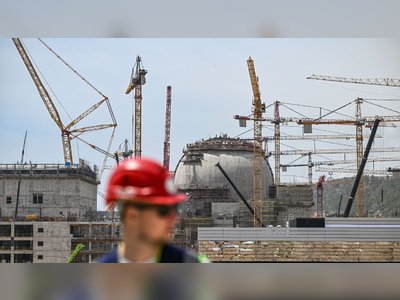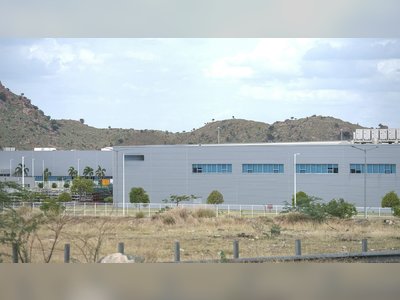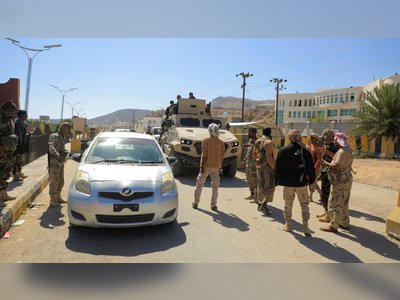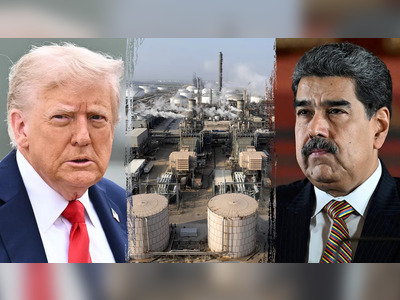
The Philippines' Mining Dilemma: Balancing Green Energy Needs and Indigenous Rights
The Philippines, which has the world's fourth-largest copper reserves, fifth-biggest nickel deposits, and significant cobalt resources, is looking to increase mining to meet the global demand for transition minerals essential for green energy technologies.
The Paris Agreement goals require mineral requirements for renewable energy to be quadrupled by 2040, leading to a projected 500% increase in demand for transition minerals.
As a mineral-rich country with underdeveloped mining and only 1% of GDP from mining, the Philippines aims to boost production of critical minerals.
However, environmental groups are urging strict limits to protect nature and Indigenous lands.
The Philippines has a large amount of mineral reserves on Indigenous lands, and there is a call for new legislation to limit mining activity for the sake of the environment and Indigenous rights.
Maya Quirino of the Legal Rights and Natural Resources Center (LRC) believes that mining should be done responsibly and only for what is necessary for the green energy transition.
Gold, for instance, is not essential for the energy transition.
Anti-mining activists are pushing for the closure of mines in areas like Didipio in Nueva Vizcaya.
The text discusses Quirino's organization's push for a new mining law in the Philippines that would only allow "indispensable extraction" of critical minerals, prohibit destructive open-pit mining in sensitive ecosystems, and increase taxes on mining companies to benefit local communities.
The draft bill supporting these measures is still pending in Congress.
The text also mentions that the global mining area has doubled in the past three years due to demand for critical minerals, leading to negative impacts on people and the environment in the Philippines, including water supply depletion and displacement of Indigenous peoples.
Mining projects in Southeast Asia, specifically in the Philippines, have led to disputes with Indigenous communities over land rights and environmental concerns.
The Tampakan and Didipio gold and copper mines in South Cotabato and Nueva Vizcaya provinces have been sources of controversy.
Local communities have accused these mines of causing pollution and water shortages.
Myrna Duyan, a member of the Tuwali indigenous group, shared her experience of being unable to farm on her father's land due to irrigation issues since 2017.
Some Indigenous people have been displaced, while others see the mines as an economic opportunity.
The text discusses the concerns of Quirino, who represents a group advocating for increased royalties from mining companies for local Indigenous communities in the Philippines.
Currently, miners pay 4% excise tax to the national government and 1% royalties to Indigenous communities.
A proposed minerals management bill aims to raise these taxes to 10% each, but it is not a priority measure for President Marcos Jr. The bill also proposes heavier fines for human rights and environmental violations.
However, Marcos has not publicly commented on these demands.
The main issue is that most mining tax revenue goes to the national government, leaving little for local communities.
Quirino expressed concern about the lack of a comprehensive framework for mining in the country, warning that without one, mining activities may bring only short-term financial gains without considering the long-term consequences and nuanced approach to managing natural resources.
As a mineral-rich country with underdeveloped mining and only 1% of GDP from mining, the Philippines aims to boost production of critical minerals.
However, environmental groups are urging strict limits to protect nature and Indigenous lands.
The Philippines has a large amount of mineral reserves on Indigenous lands, and there is a call for new legislation to limit mining activity for the sake of the environment and Indigenous rights.
Maya Quirino of the Legal Rights and Natural Resources Center (LRC) believes that mining should be done responsibly and only for what is necessary for the green energy transition.
Gold, for instance, is not essential for the energy transition.
Anti-mining activists are pushing for the closure of mines in areas like Didipio in Nueva Vizcaya.
The text discusses Quirino's organization's push for a new mining law in the Philippines that would only allow "indispensable extraction" of critical minerals, prohibit destructive open-pit mining in sensitive ecosystems, and increase taxes on mining companies to benefit local communities.
The draft bill supporting these measures is still pending in Congress.
The text also mentions that the global mining area has doubled in the past three years due to demand for critical minerals, leading to negative impacts on people and the environment in the Philippines, including water supply depletion and displacement of Indigenous peoples.
Mining projects in Southeast Asia, specifically in the Philippines, have led to disputes with Indigenous communities over land rights and environmental concerns.
The Tampakan and Didipio gold and copper mines in South Cotabato and Nueva Vizcaya provinces have been sources of controversy.
Local communities have accused these mines of causing pollution and water shortages.
Myrna Duyan, a member of the Tuwali indigenous group, shared her experience of being unable to farm on her father's land due to irrigation issues since 2017.
Some Indigenous people have been displaced, while others see the mines as an economic opportunity.
The text discusses the concerns of Quirino, who represents a group advocating for increased royalties from mining companies for local Indigenous communities in the Philippines.
Currently, miners pay 4% excise tax to the national government and 1% royalties to Indigenous communities.
A proposed minerals management bill aims to raise these taxes to 10% each, but it is not a priority measure for President Marcos Jr. The bill also proposes heavier fines for human rights and environmental violations.
However, Marcos has not publicly commented on these demands.
The main issue is that most mining tax revenue goes to the national government, leaving little for local communities.
Quirino expressed concern about the lack of a comprehensive framework for mining in the country, warning that without one, mining activities may bring only short-term financial gains without considering the long-term consequences and nuanced approach to managing natural resources.
Translation:
Translated by AI











